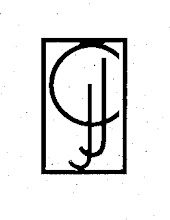 Last year I started buying some of my dog food at a little shop north of Chicago. One week, a calico kitten greeted me there (not the calico pictured, but one just like it). She was crazy friendly and curled up in my bag while I was trying to pay for my items. I was tempted to take her home, especially after hearing her story.
Last year I started buying some of my dog food at a little shop north of Chicago. One week, a calico kitten greeted me there (not the calico pictured, but one just like it). She was crazy friendly and curled up in my bag while I was trying to pay for my items. I was tempted to take her home, especially after hearing her story.Her name was Grace and she was brought to the store’s owner just for fostering until an adopter could be found. Of course, the store owner and all her staff fast fell in love with Grace and she’s now permanently employed as the store greeter and nighttime mischief-maker.
But her story started earlier—in the halls of a local high school. A young girl (freshman or sophomore) happened upon a group of older boys who, circled around the pied feline, were taking turns kicking her and stepping on her. The courageous girl told them to stop; they didn’t. So she very simply stepped between the ruffians and took away their plaything.
Her mother called the school to report the incident, but when the school official discovered that the kitten didn’t actually belong to the girl—wasn’t the property of anyone who cared about it—he said it wasn’t necessary to reprimand the boys or take action against them.
I can’t remember why the family couldn’t keep Grace—something to do with severe allergies, no doubt. But they knew enough to contact the store owner, who was known in the community for her rescue work.
Not all abused animals get such a happy ending, as Charles Siebert notes in “The Animal-Cruelty Syndrome” in yesterday’s New York Times. If you’re interested in animal welfare or neurological studies or forensics, this is a must-read. Siebert includes stats on the links between domestic abuse (spouses and children) and animal abuse, new research on the neural circuitry of aggressive teenagers, and why training is needed to provide better forensics in animal abuse cases.
It’s a tough read, but the more we all understand about why animal abusers do what they do and what happens in their brains when they do it, the easier it will be to protect the innocents.



No comments:
Post a Comment